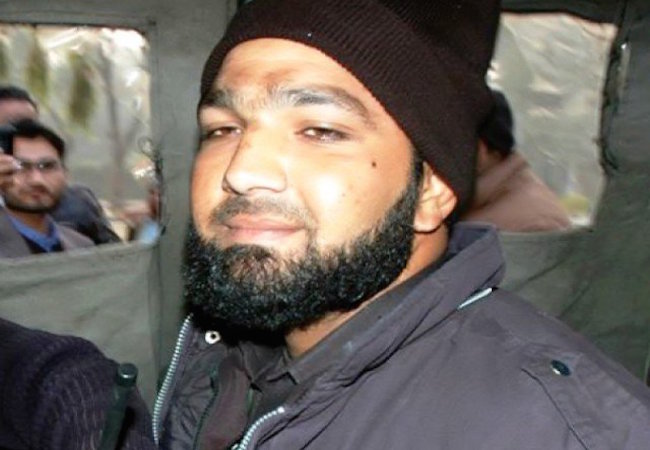
By Saima Ali
On Monday, 29 February 2016, at 0430 hours in the morning the Anaconda once again struck with all its might to swallow a victim of misinterpretation and rigidness of a man made law. The killer of Salman Taseer, Malik Mumtaz Qadri was executed at Adiala Jail, Rawalpindi. Mumtaz, a former police commando, assassinated Taseer in Islamabad’s Kohsar Market on January 4, 2011.
Governor Taseer was killed in the mistaken belief strongly held by Qadri that he had in some way committed a blasphemous act by the mere consideration of the blasphemy laws being in need of overhaul. He has been supported by some, not least by lawyers who showered him with rose petals on one of his appearances for judicial remand. The calls by religious groups that those who sought the execution of Qadri should themselves be executed have found no public resonance. Indeed, outside the purlieus of extremism and rabble-rousing street action, there has been little by way of organised or sustained support for Qadri. That in itself may prove to be one of the few positives to emerge from this sad affair.
As per the Constitution, the official name of Pakistan is the “Islamic Republic of Pakistan.” Among countries with a Muslim majority, Pakistan has the strictest anti-blasphemy laws. The first purpose of those laws is to protect Islamic authority. By the constitution (Article 2), Islam is the state religion. By the constitution’s Article 31, it is the country’s duty to foster the Islamic way of life. By Article 33, it is the country’s duty to discourage parochial, racial, tribal, sectarian, and provincial prejudices among the citizens. Under Article 10A of constitution it is also the state’s duty to provide for the right of fair trial.
Blasphemy laws were first introduced in the Indian subcontinent by its British colonial rulers. Communal tensions between Hindus and Muslims before the partition of the subcontinent backed by political interests of different groups, including colonial rulers, were the main reason behind enactment of blasphemy laws.
Pakistan’s history in relation to the practice of blasphemy laws can be divided into periods before and after General Zia-ul-Haq’s era. Until the ascendency of Zia to power, most of the blasphemy cases were in line with what the founder of the country had assured the Muslims and the non-Muslims in his speech of 11 August 1947. After taking power Zia made amendments to blasphemy laws from 1980-1984 as part of his Islamization drive and five more laws relating to blasphemy were introduced to the statue book.
From 1851 to 1947, there were only seven incidents that were blasphemous in their nature. Before Zia’s coup, only eight blasphemy incidents took place in the country. During this short period of eight years (1980-88), Pakistan witnessed eight blasphemy cases reaching the court.
Pakistan’s opposition to blasphemy has caused Pakistan to be active in the international arena in promoting global limitations on freedom of religion or belief and limitations on freedom of expression. In March 2009, Pakistan presented a resolution to the United Nations Human Rights Council in Geneva which calls upon the world to formulate laws against the defamation of religion. In 2014, “The Nation”, conducted a poll of its readers that showed 68% of Pakistanis believe the blasphemy law should be repealed.
The execution of Qadri had been widely expected and social media prior to the event were a-buzz with those who supported the hanging and those who did not. Capital punishment solves nothing and has never been a deterrent, and in a country where mistakes are far from justice system, this is sufficient reason to find some verdicts at the very least doubtful. The use of capital punishment under such circumstances becomes a travesty. Although we oppose capital punishment, we equally advocate the rule of law. We disagree with the legislation that sentenced Qadri to hang, at the same time we support the fact that the government has resisted intense pressure from the religious right to grant Qadri a reprieve.
There is more to a Muslim’s identity than theological adherence and its adopting Muslim pluralism that will breed religious coexistence in Pakistan. This would in turn create a society that is democratic, humanistic and tolerant enough to abolish the capital punishment. And that is when Mumtaz Qadri will truly be eliminated.
The question still remains that the child, who lost its father and mentor, just after one year of its birth in 1947 and now a comparatively young independent country in the community of the nations of the world, can have the direction to fight its way out of the nest of anacondas and can fit in the jigsaw of the world as visualized by its founder and the forces that led to its independence?




